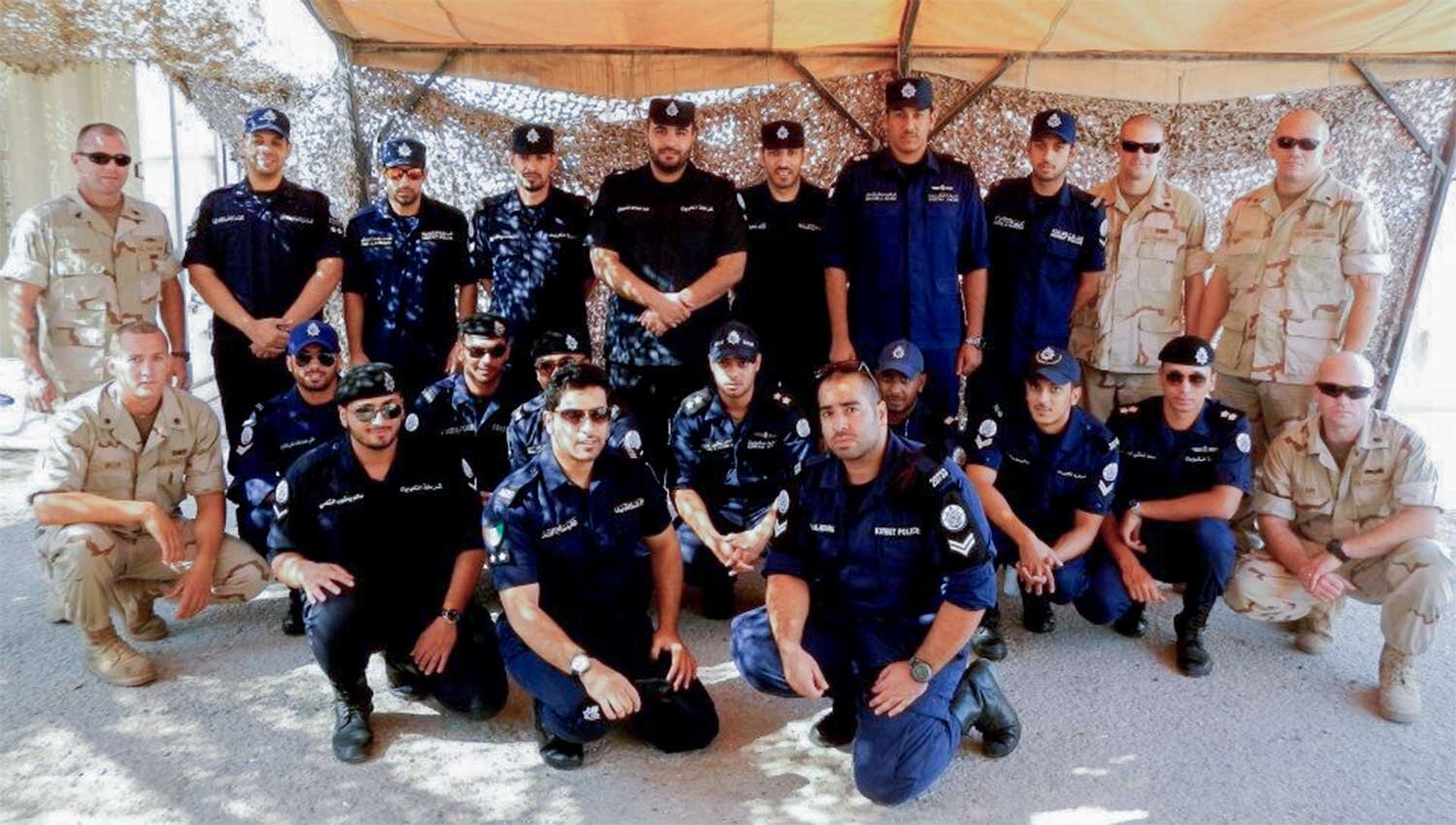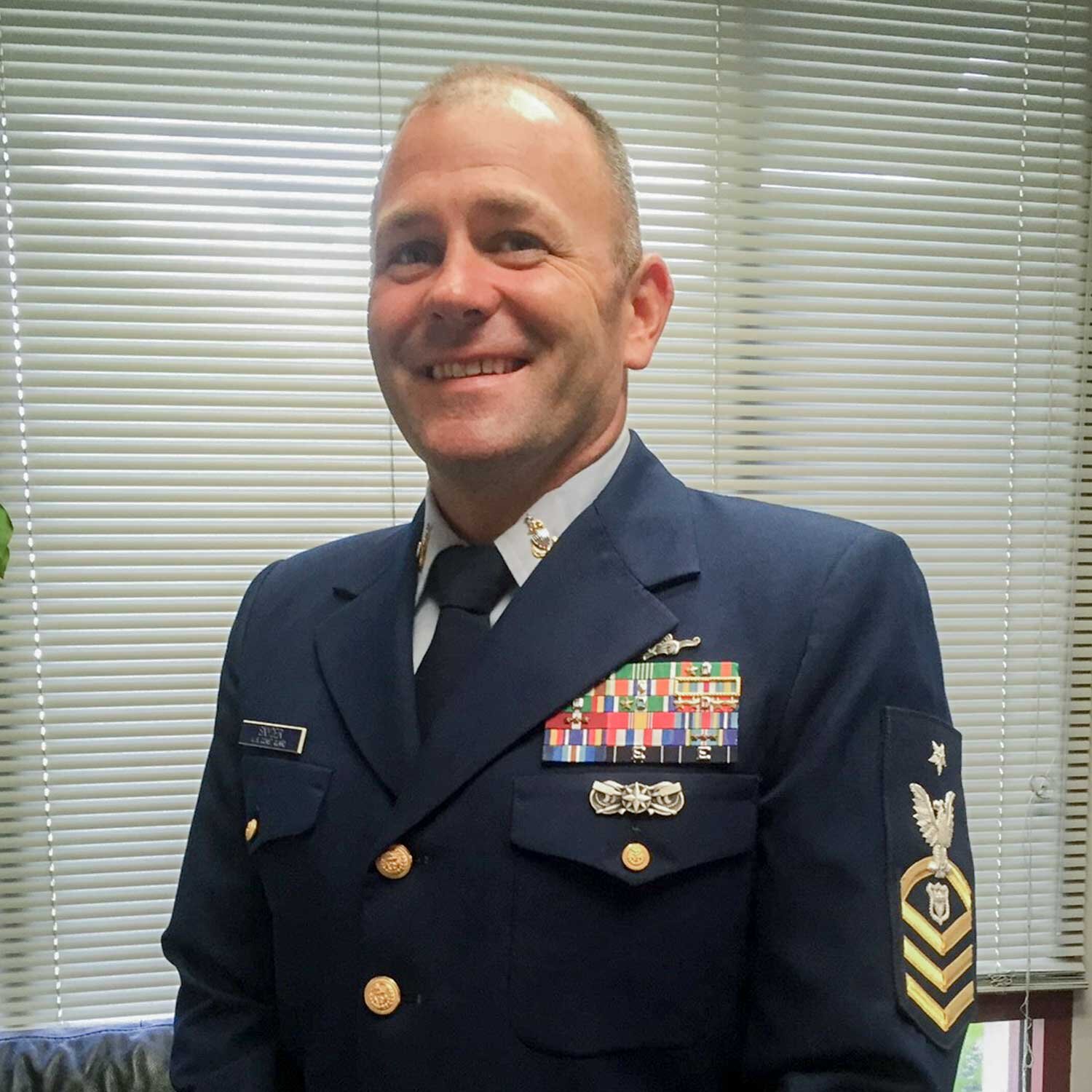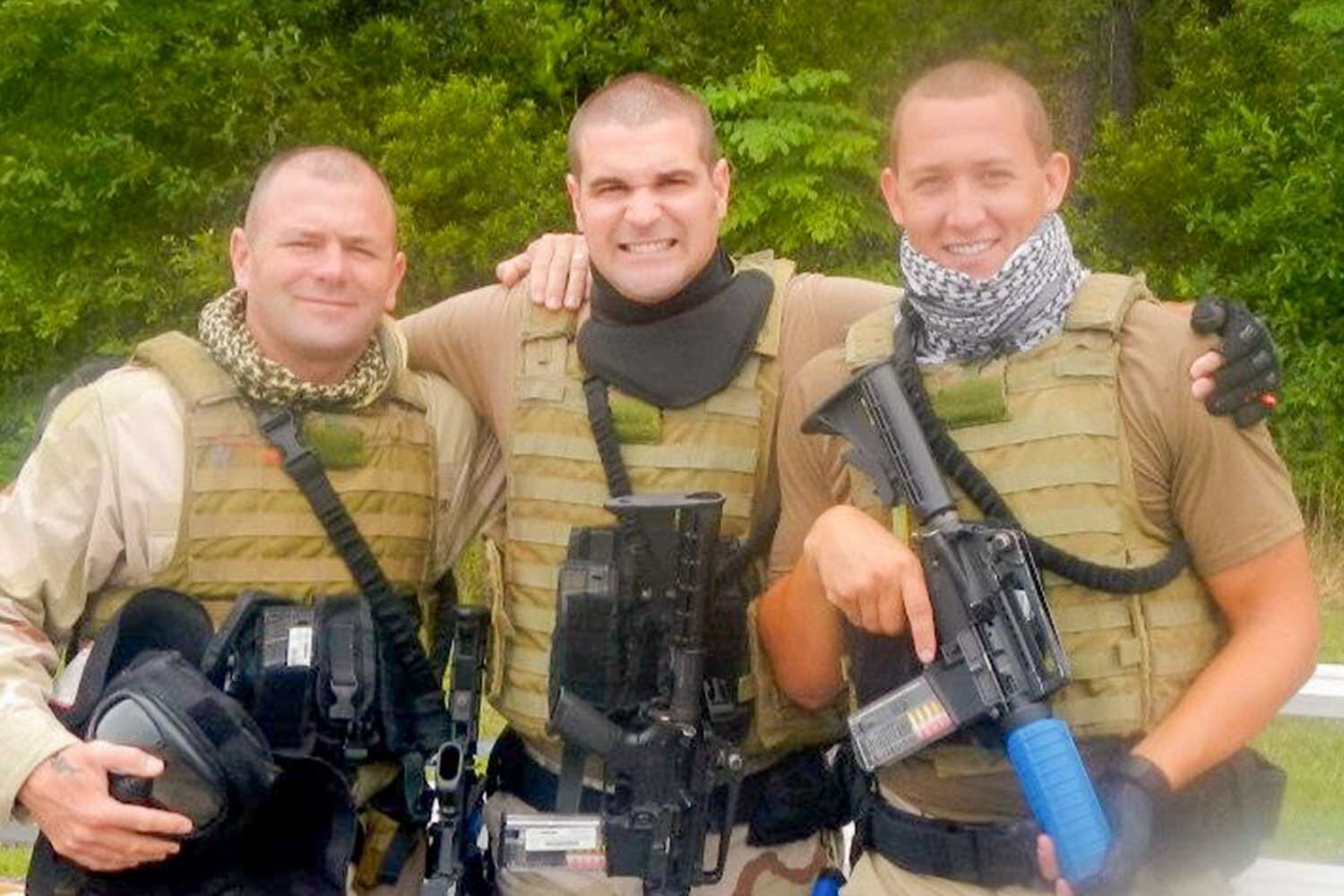Water Cred
Marc Snyder is one of many instructors at the Kentucky Department of Criminal Justice Training who has brought their wealth of law enforcement experience to help train to the next generation of law enforcement in the Commonwealth.
However, unlike many other instructors, Snyder’s experience is unique as 100 percent of his policing know-how comes from the United States Coast Guard, where he retired after a 21-year career that saw him rise to the rank of senior chief petty officer.
“I guess you could say I don’t have the street creds; I have water creds,” Snyder joked. “But, my resume speaks for itself.”
When he first joined the Coast Guard, Snyder wanted to become a rescue swimmer.
“I wanted to be one of those guys who jumped out of the helicopter and into the water, but it wasn’t in the cards for me,” he said. “I became a boatswain mate, which was the next best thing. I got to drive the boat and do the same thing.”
9/11
Then 9/11 happened.
“I was at the (Niagara Falls Air Reserve Station) in Niagara Falls,” Snyder recalled. “After 9/11, there was talk about standardizing the law enforcement program in the Coast Guard. I had been doing law enforcement the whole time, but it was not a situation where law enforcement was your only job. I was law enforcement, boat maintenance and running the station.”
In the post 9/11 world, law enforcement began to play a larger role, and Snyder said the Coast Guard’s missions began to change afterward.
“They formed a new rate (classification), which turned out to be the Maritime Enforcement Specialist,” he explained. “I was one of the first as a Maritime Enforcement Specialist. They took the more experienced law enforcement personnel and asked, ‘Who wants to pioneer this rate and who loves law enforcement?’ I raised my hand.”
During his time in the Coast Guard, Snyder graduated many law-enforcement related courses that help set him up for his role at DOCJT.
“I spent a year with a training team overseas with all of our allied forces on how to board a ship and take it back from a hostile force,” he said. “I ran a shoot house over there that was based in Bahrain (Asia), and we did a lot of with the Marine Fast teams, and they’re the ones tasked with taking back embassies.
“Several countries and kingdoms went through the shoot house at one point or another,” Snyder continued. “That was a fantastic experience. I got of firearms and tactics experience out of it.”
Additionally, shortly after the 2018 Marjory Stoneman Douglas High School shooting in Parkland, Fla., Snyder helped create active shooter and active threat policies by working with the federal, state, and local law enforcement agencies.
“It covered a much larger area of southeast Florida,” Snyder explained. “It was policies on who and how agencies would respond to incidents happening in and around the maritime environment. This covered single-officer response tactics including how they would link up with other officers as they arrived, this was something that was previously foreign to everyone.”
Road To DOCJT
His military law enforcement experience helped shape Snyder’s path. When he decided to retire from the Coast Guard, he did not want to waste his knowledge, so he sought a position that would help law enforcement.
That is what lead him to DOCJT.
“The law enforcement side of things and working with firearms is what I wanted to continue when I retired from the Coast Guard,” Snyder said. “I had several years of experience under my belt, and I didn’t want to waste it. All of that experience is worth something, and to just cut that off and disappear into retirement, to me, it doesn’t help anyone.”
Even his journey to DOCJT was unique as he searched various employment websites and came across the job listing on LinkedIn.
(Photo provided)
“I was working as a liaison with the Secret Service at President Trump’s place in Mar A Lago, (Florida) it’s something I did for about seven years. I also did it for President Obama in Hawaii,” he said. “I was talking so some older gentlemen who had retired, and I mentioned DOCJT. He said, “DOCJT … is that the one in Richmond, Ky.? I was surprised that he knew what I was talking about.”
“(The firearms position at DOCJT) fell in line perfectly with what I wanted to do,” he said. “I wanted to help continue with law enforcement and use the skills that I acquired with the Coast Guard, and help law enforcement.”
While his law enforcement experience is unique, Snyder said there are many advantages he brings to the job.
“When it comes to teaching, I feel like I am good working with a diverse crowd,” he said. “I’ve worked all over the country with people from varied backgrounds.”
Moreover, the diversity he saw while serving in the Coast Guard makes it easy to communicate with students.
“My ability to communicate with people in any format is a great asset,” he explained. “I feel I do a great job explaining myself when it comes to weapons. I am patient and can convey my thoughts.
“Coming from a vastly different law enforcement background, I think my stories can bring a different spin on things, rather than just the usual police background,” he continued. “I can think outside the box a little bit more because I’ve done so many different things. Those experiences can relate to what we’re dealing with, such as the active shooter thing. I’ve in engrossed in active shooter training for the last several years.”
While Snyder’s Coast Guard career was rewarding, he is finding his duties at DOCJT are equally satisfying, and that is motivation to come to work and put his best foot forward.
“To be able to get a story from someone who went through something bad, and them telling me something I said or did along the way helped that person get through the situation would be the end-all, be-all, best thing that would come out of me spending my time training these law enforcement officers,” he said.
(Photo by Jim Robertson)










